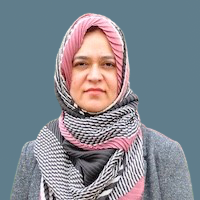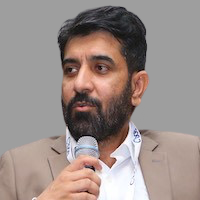Welcome to Nash FintechX
Pioneering Transparency and Innovation in Carbon Markets!
At Nash FintechX, we're on a mission to empower companies in their journey towards sustainability. Based in the heart of Luxembourg, we are a licensed SaaS provider dedicated to developing innovative software solutions that help organizations achieve their climate goals. Our unique product is designed to transform the carbon market, bringing transparency, security, and efficiency to the buying and selling of carbon credits.
Our Story: The Spark that Ignited Change
The seeds of Nash FintechX were sown in Q1 2021, amidst the energizing waves of climate commitments from corporations large and small. As discussions around net-zero targets continued to heat up, we noticed a critical gap: the complexities and challenges surrounding carbon credit transactions. With the Paris Climate Accords setting ambitious milestones for reducing emissions by 2030 and beyond, we recognized the urgent need for a solution that could cut through the noise.
Our journey began with a deep dive into the world of carbon credits, where issues like “greenwashing” and complexities in carbon credit value chain presented significant roadblocks in global climate efforts. Inspired by the growing demands for accountability and clarity, we innovated a platform that not only meets these needs but exceeds expectations. Thus, Nash FintechX was born—a response to the pressing challenges of our times.
Why Choose Nash FintechX?
Competitive Edge
- Unmatched Transparency: We are committed to preventing greenwashing and ensuring a true accounting of climate efforts so that your contributions are visible and credible.
- Seamless Blockchain Integration: Built on cutting-edge blockchain technology, our platform combines security with ease-of-use, making it just as simple as any existing web application.
- Effortless Integration: Our solutions work seamlessly with your existing business processes, ensuring a smooth transition towards more sustainable practices.
- Fractionalized Access: With the ability to fractionalize carbon credit NFTs, we lower the barriers to entry, allowing more investors to participate and facilitating easier resales.
- Affordable Transactions: Enjoy extremely low transaction fees, giving you more value without compromising on service quality.
- Green Commitment: We operate on a green blockchain platform, Algorand, reinforcing our dedication to environmental stewardship.
- Cost-Effective Solutions: Our fees align with those of platforms known for their reliability—like PayPal—ensuring that sustainability is within reach for all.
Join us at Nash FintechX as we navigate the complexities of carbon markets together. Together, we can drive meaningful change, unlock new opportunities, and ultimately, work towards a net-zero future. Are you ready to take the next step in your sustainability journey?
Our Team

Nida Khan
Founder & CEO

Harry Lars Ghillemyn
General Counsel

Sheikh Farid
Founding Product Engineer

Dr. Amjad Bangash
Chief Compliance Officer

Imtiaz Azeem
Brand Manager

Farah Diba Abrar
Operations Manager
Our Founder
Dr. Nida Khan is the Founder and CEO of Nash FintechX . She is a national delegate, being a part of the National Mirror Committee in Luxembourg, for the ISO technical committees dedicated to GHGs, blockchain and sustainability of cities and communities. She served as a European Climate Pact Ambassador for 2024‐2025, a contribution certified by the European Commission.
She received the second prize for SDG Global Talent Award 2023 in the category of Climate Action, in an event held in Norway for our software DCarbonX. She has also been chosen as a Global Innovator by Expo Live Innovation Programme in Dubai for our solution DCarbonX. The company was ranked amongst the top 100 ESG companies in the world in 2022, 2023 and 2025, by Fintech Global, UK under her leadership. We also won the European Technology Awards 2023 in the startup category for pioneering sustainable innovation in fintech in Paris, being guided by her vision.
She holds a doctorate in computer science, where her industrial research on blockchain-based financial applications was accorded the Luxembourg National Research Fund grant for innovative, industrial projects. She has received VC training by MiddleGame Ventures, where she emerged as one of the winners of the training program.
She has worked on projects in social finance and decentralized finance, including tokenization. She is a pioneer in giving the economic impact of blockchain-based micropayments, developing a novel consensus mechanism for scalable blockchains, proposing a mathematical framework for blockchain governance and ensuring GDPR-compliant privacy preservation in blockchains. Her past achievements include developing two pioneering iOS and Android apps, where the latter had 10K+ installs. Her work appears in diverse publications, and she speaks regularly on emerging technologies.
Blockchain Projects led by our Founder
Challenge: Enable transparency in donation
Solution: Donation transactions through a smart contract in Ethereum
Decentralized donation app on Ethereum
Challenge: Preserve data privacy in blockchain
Solution: Smart contract to integrate differential privacy in blockchain data
Privacy preservation through smart contracts
Challenge: Manage and monitor blockchain data changes
Solution: Dashboard displaying changes in monitored blockchain data and sending email notifications to the admin for private data changes
Monitoring dashboard for Ethereum data
Challenge: Scalable blockchain consensus with a high throughput
Solution: Consensus based on MapReduce paradigm with the blockchain throughput comaprable to Visa and is environmentally-friendly
MapReduce consensus for a novel blockchain, FAST
Challenge: Enable blockchain usage through all devices
Solution: Light client of blockchain where data is stored in IPFS instead of the user's local device
